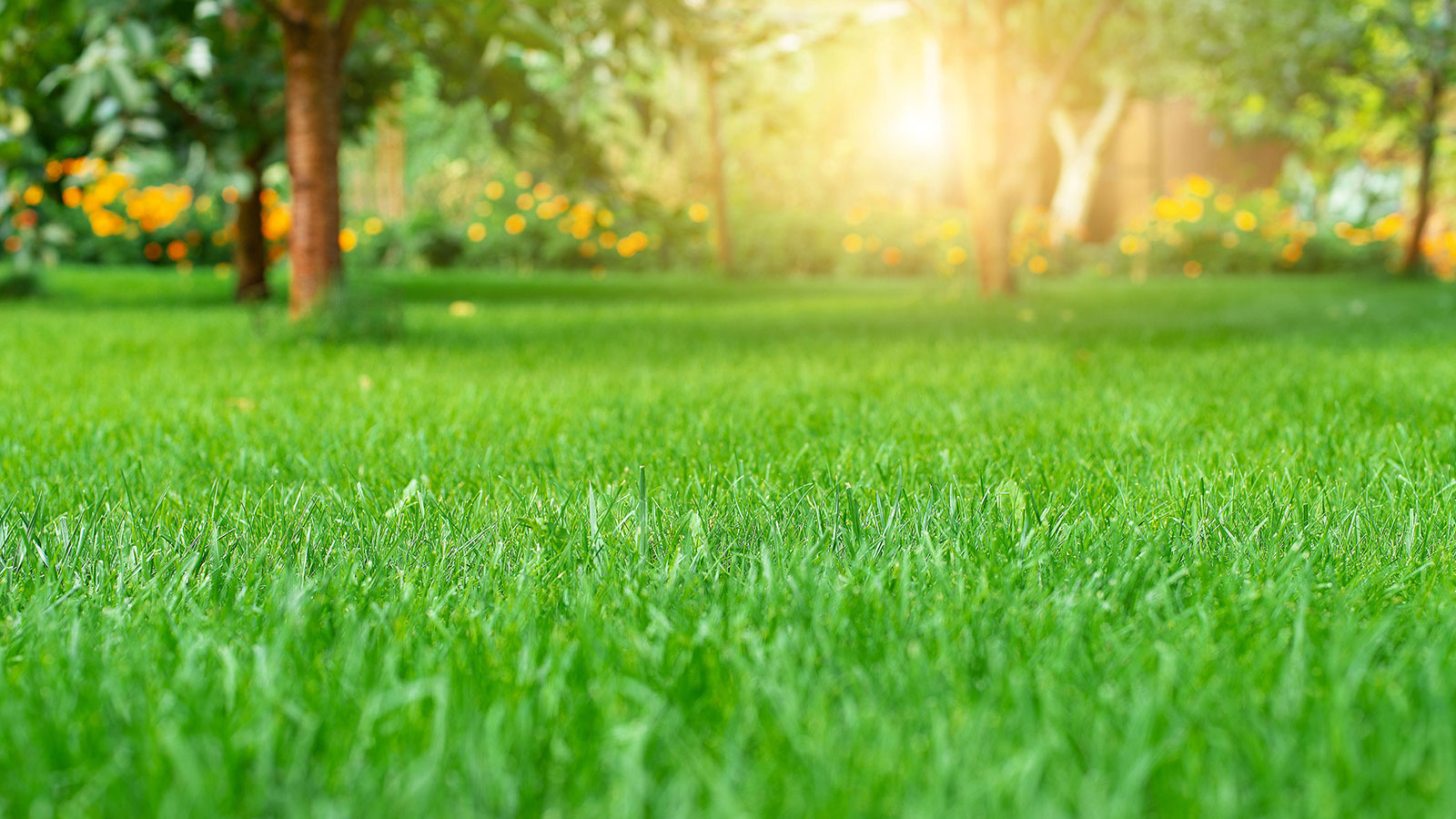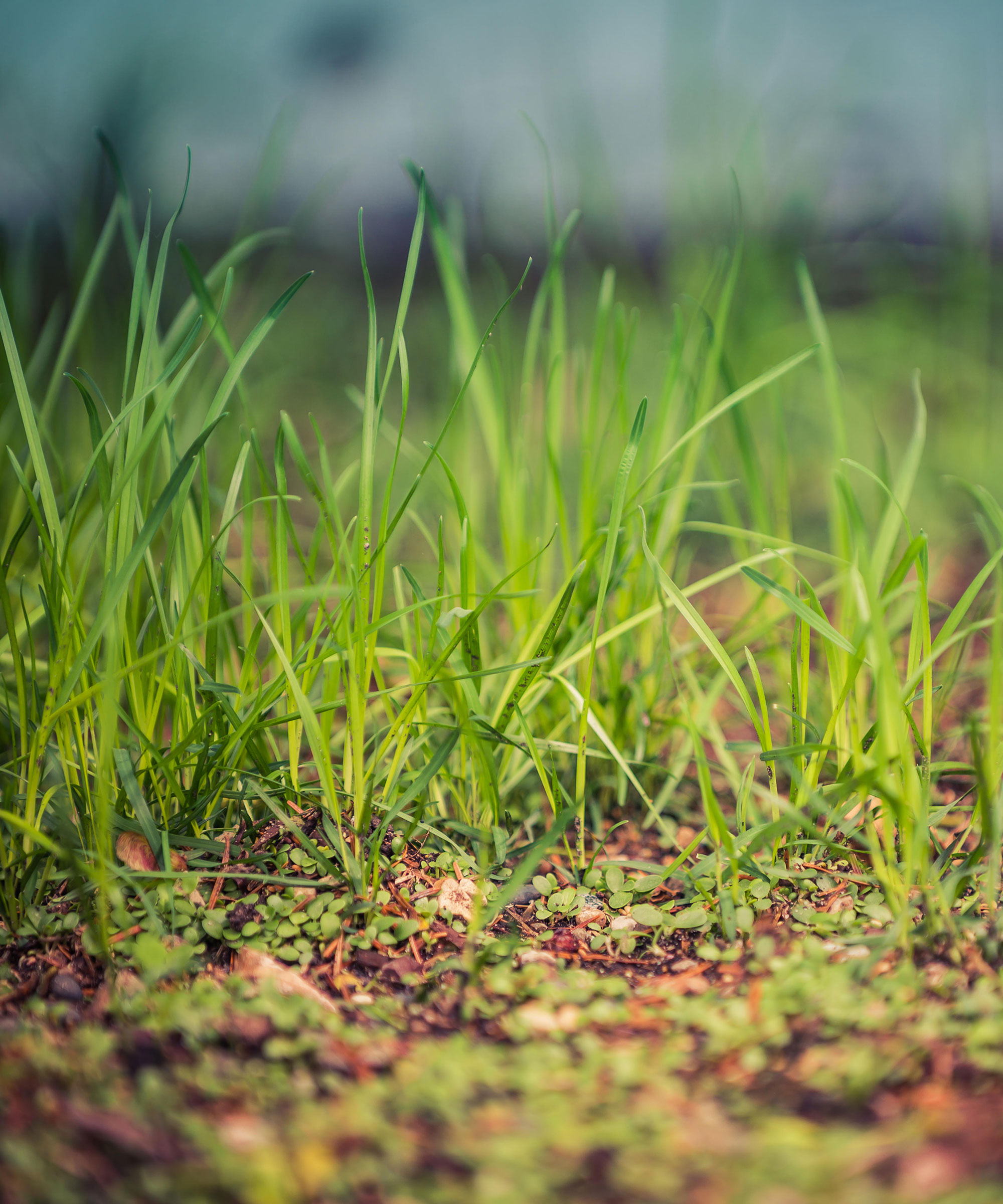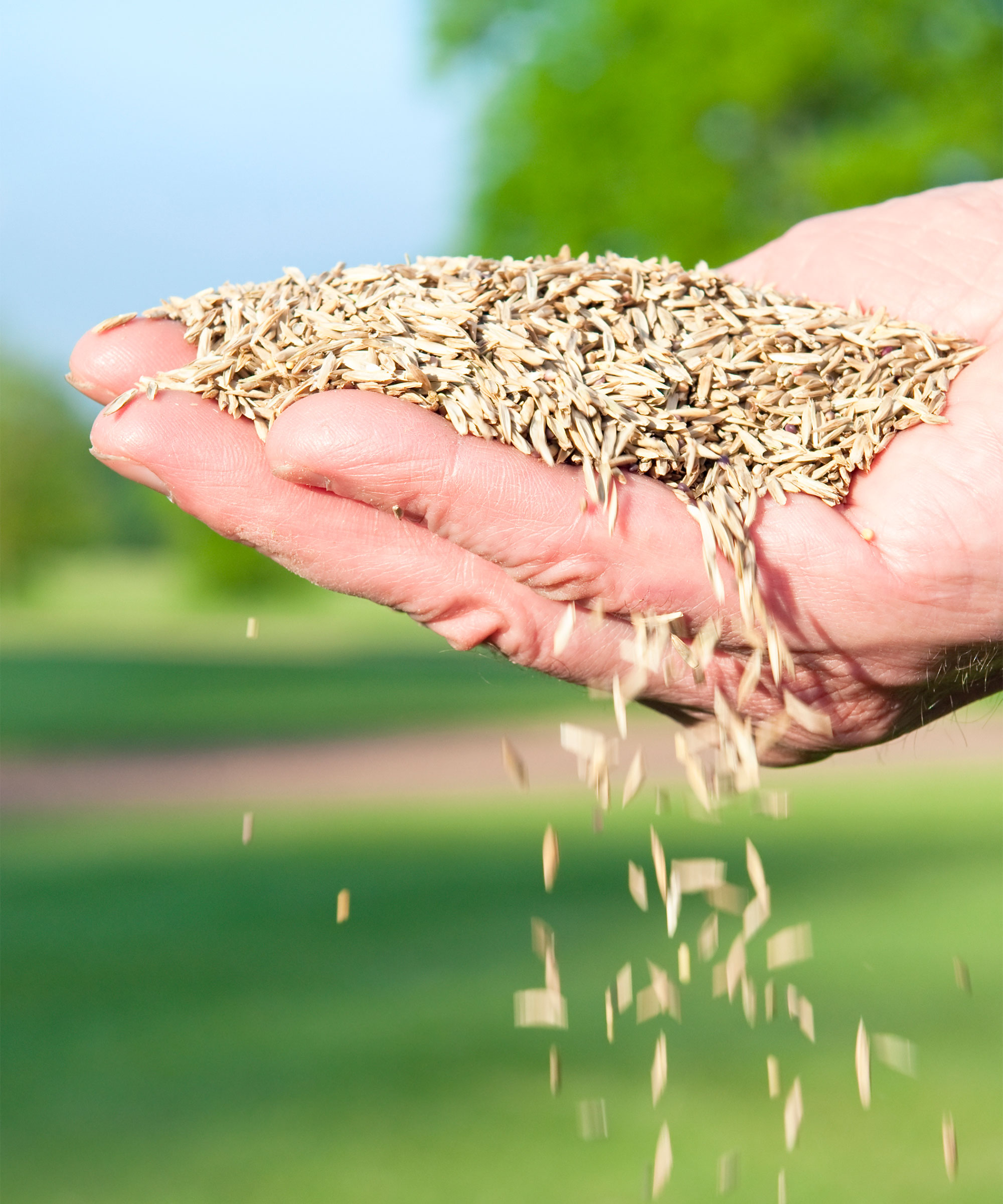Why is my grass seed not germinating? Experts reveal the common reasons and solutions
Discover why grass seed can struggle to germinate so you can solve the problem and get your new lawn back on track


If you've recently put down grass seed and are frustrated that it's not germinating, there are few different reasons this can happen. Knowing more about each possible problem can really help solve the issue and get your new lawn growing as you'd like.
Like any seed, grass seed has one ambition and that is to grow, but to do this it needs the right conditions. These factors include soil type and condition, temperature and moisture levels, and if any of these are too extreme they can inhibit growth. Choosing appropriate seed for your climate and ensuring it is in the best condition is also key to success.
Here experts explore the detail behind grass seed not germinating so you can be fully up to speed with how to plant grass seed and then grow or re-sow your lawn with confidence.
6 reasons why your grass seed is not germinating
‘There are several possible causes that may prevent the grass seed from growing, such as poor soil quality, inadequate sunlight or water, temperature extremes, bad seed, and pests,’ says Susan Brandt, Co-Founder of Blooming Secrets. ‘If you're having difficulty getting your grass seed to germinate, there are some steps you can take.’
Once you know what the six common issues are, and you're also sure of when to plant grass seed in your area too, you'll give your lawn the best chance of germinating and growing well.
1. Incorrect air and soil temperature
Sowing grass seed at the right time is key to its success and one major contributor for germination is heat. Seed needs warmth to grow and in northern climes it can take a while for the ground temperature to rise sufficiently to encourage seed to shoot. For best results wait until temperatures reach 46-50˚F consistently, for a two-week period before sowing, especially as grass seed can struggle to grow after a frost.
‘Extreme temperatures, drought, or other environmental factors can also affect seed germination,’ says Stacie Krljanovic, Head Groundkeeper and advisor to Patio Productions. ‘Be sure to plant seed at the right time for your region and consider using shade cloth or other methods to protect the seed from extreme heat or cold. If you have tried all of these measures and are still having trouble with grass seed germination, it may be helpful to consult with a lawn care professional or agricultural extension agent for further advice.’
2. Conditions are too wet or dry
Like any seed, grass seed needs to be in contact with moisture to germinate. Water activates the enzymes within the seed encouraging them to release energy and create enough pressure for a shoot to burst through the seed coating.
In order for grass seed to start to grow, it is vital that surrounding moisture levels remain steady as any wild fluctuations will cause the process to stop. ‘Make sure to start with fresh seed and to keep the seed bed moist consistently throughout the day,' says Eric DeBoer, agronomist for Simple Lawn Solutions. 'We don't want to flood the seed, but it also needs to stay moist.’
Aim to water grass seed once or several times daily for the first few weeks, depending on your climate, ensuring the seed stays moist and doesn’t dry out. A lawn sprinkler with a fine mist is the best option for larger areas, as there is less chance of dislodging the seed. Just be sure to move the sprinkler to make sure all sections of the lawn are watered.

Grass seed will need plenty of moisture to grow well
3. Seed sown at the wrong depth
There’s a fair amount of confusion when it comes to sowing grass seed, and knowing whether to cover the seed with soil or not is often debated and can lead to germination problems.
‘If you've recently planted grass seed and it's not germinating, it's possible that the seed wasn't planted deep enough in the soil,’ says Rhys Charles, CEO and Founder of‘ Mower On The Lawn. ‘Grass seed needs to be planted at a depth of about 1/4 to 1/2 inch in order for it to germinate properly. If the seed is planted too shallowly, it will dry out quickly and won't be able to germinate. If you think this may be the problem, dig up a small section of the affected area and check the depth of the seed. If it's too shallow, replant the seed at the proper depth and water it well.’
Sowing seed too deeply can also cause failure as the seed is unlikely to have enough stored energy to break ground. Even if it does, growth is likely to be weak and spindly resulting in sparse and patchy grass, rather than the green and thick lawn you were after.
4. Not knowing your germination timings
Choosing the right grass seed for your plot is all important, as different varieties prefer different growing conditions. From grass seed for full sun to drought tolerant grass varieties, there are plenty to choose from.
It’s also important to know that different varieties grow at varying rates – starting with putting out their very first shoots – and this can cause confusion for first time gardeners. ‘Different grasses have different germination periods,’ says Susan Brandt. ‘Some are fast-growing grass seed that can be expected to sprout in a week to 10 days, and others in 2 to 3 weeks or longer. Make sure you know your expected schedule.’
As a rule, cool season grasses germinate faster than warm season varieties. Perennial ryegrass tends to be the fastest growing taking between 5-10 days, while finer tall fescue takes around 7-12 days.
Patience is needed when sowing warm season grass varieties. They tend to take longer to shoot and to mature into a thick lawn – sometimes taking as long eight weeks for the first cut and a year to fully establish. Popular types include Buffalo grass with a germination time of two to four weeks and Zoysia grass taking two to three weeks.
5. Grass seed is past its best
Seed germination failure can be caused by using old seed or keeping it in less than ideal storage. ‘Germination failure could be because the seed wasn't stored properly and got wet or moldy,' says Rhys Charles. 'If the seed is old or has been exposed to moisture, it may not be viable anymore. Try storing the seed in a cool, dry place and see if that makes a difference.’
Like most natural products, grass seed does have a shelf life and, beyond this, the product can gradually fail at a rate of 10% on average per year. In most cases manufacturers suggest sowing grass seed within two years of sealing, and the sealing date is usually stated on the packaging.

Make sure you use your grass seed before its expiry date to give it the best chance of germinating
6. Poor soil conditions
Soil preparation is all important when sowing a lawn from scratch or overseeding an existing one. If conditions are less than ideal grass seed can fail to germinate.
‘Grass seed needs a healthy, nutrient-rich soil to grow,’ says Stacie Krljanovic. ‘If the soil is compacted, lacking in nutrients, or too acidic, the grass seed may not be able to grow properly. Be sure to prepare the soil properly before seeding and consider adding compost or other organic matter to improve soil health.’
FAQs
Can it be too wet for grass seed to germinate?
Yes – conditions can be too wet for grass seed to germinate. If any seed is left sitting in water for a period of time rot will set in and, ultimately, the plant will fail to grow. Success really depends on how well the surrounding soil drains.
Most soil types will drain pretty easily but there are a few things you can do to help. Aerating the lawn with an aerator machine or garden fork will help to break up any compacted soil, while adding a layer of topsoil or lawn sand can help improve the dense structure of heavy clay.
Sign up to the Homes & Gardens newsletter
Design expertise in your inbox – from inspiring decorating ideas and beautiful celebrity homes to practical gardening advice and shopping round-ups.

Journalist Jill Morgan has spent over 20 years writing and editing gardening, interior and property features. Titles she has worked on include The English Home, House Beautiful, Ideal Home, Houzz and Modern Gardens and she writes regularly for H&G as a Contributing Editor. Whilst she is a dab hand at renovation projects and DIY, she is happiest when out digging in the garden or planning a new border.
-
 Kylie Jenner, Tommy Hilfiger, and Lenny Kravitz transform their homes with prints – the London Original Print Fair Director has a method that makes their look 'accessible and affordable' in your home
Kylie Jenner, Tommy Hilfiger, and Lenny Kravitz transform their homes with prints – the London Original Print Fair Director has a method that makes their look 'accessible and affordable' in your homeCelebrities from the Kardashians to Lenny Kravitz decorate their homes with prints by famous artists, and it's easier to recreate than you might expect
By Sophie Edwards
-
 ‘Completion days’ are the answer to laundry doom piles, pro organizer claims – here’s how this hack can instantly stop fresh laundry from piling up once and for all
‘Completion days’ are the answer to laundry doom piles, pro organizer claims – here’s how this hack can instantly stop fresh laundry from piling up once and for allStay on top of your laundry with the 'Completion days' method
By Chiana Dickson